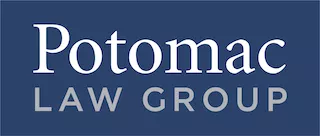- prohibit exclusive and graduated (tiered or success-based) revenue sharing arrangements between incumbent telecommunications providers and owners of residential or commercial multiple tenant environments (apartment or condominium buildings, cooperatives, or shopping malls) ("MTE" or "MTEs");
- prohibit the sale/leaseback of cable inside wiring in a building from an incumbent telecom provider to an MTE owner, which has the effect of locking up existing subscriber relationships;
- require disclosure of exclusive marketing arrangements to MTE tenants and potential tenants.
Prohibiting Entry Into and Enforcement of Graduated or Exclusive Revenue Sharing Agreements
The Commission has a long history of prohibiting agreements between a provider of communications services and MTE owners that give the provider exclusive access to provide service to MTE tenants as denying consumers the benefits of competition. However, the Commission in the Order determined that new varieties of exclusive agreements have developed which require it to take action. Specifically, the FCC adopted rules prohibiting providers from "entering into or enforcing" two types of revenue sharing agreements with MTE owners which it found are anticompetitive "de facto exclusive access agreements": exclusive revenue sharing agreements and graduated revenue sharing agreements with an MTE owner. The FCC concluded that these agreements "'serve no legitimate purpose other than to inhibit new entry in an MTE.'"2 Further, the FCC extended its prohibition of exclusive revenue sharing agreements to existing contracts as it determined that the anticompetitive harms of grandfathering existing agreements would potentially allow such anticompetitive conduct to continue "indefinitely." The FCC felt it must allow tenants in MTEs with existing exclusive revenue sharing agreements to also realize the benefits of competition and consumer choice.3
Disclosure of Exclusive Marketing Arrangements
The FCC also expressed concern about tenants being frequently confused about the availability of competitive service in their MTE, concluding that this confusion in and of itself diminishes competition and creates conditions of de facto exclusivity. When there is an exclusive marketing arrangement in place between an MTE owner and a service provider -as distinguished from an exclusive access agreement-that gives the service provider, often in exchange for some consideration, the exclusive right to benefit from certain marketing messaging about its service to tenants (i.e. monthly newsletter, access to Listserv, lobby or mailroom advertising). The FCC was persuaded by this record to adopt a new disclosure requirement to reduce confusion and promote competition
Under the Order, written disclosure must be included on all written (including electronic) marketing material from the provider to tenants or prospective tenants of the MTE which: (1) identifies the existence of the exclusive marketing arrangement; (2) provides a plain-language description of the arrangement and what it means; and (3) is made in a manner that is clear, conspicuous and legible. Disclosure of the exclusive marketing agreement includes the "vital" mention that this exclusive right to market does not mean that the provider is the only entity eligible to provide services to MTE tenants, and that service from an alternative provider may be available.4
Sale-and-Leaseback Arrangements of Inside Wiring Are Prohibited
The FCC inside wiring rules have long required that incumbent providers take reasonable steps within their control to ensure that an alternative service provider has access to home wiring beyond the "demarcation point," and not to use any ownership rights to inside wiring to impede a subscriber's rights to receive alternate service. The FCC concluded that sale-and-leaseback arrangements (whereby an incumbent provider transfers ownership to its inside wiring to a residential MTE owner and then leases it back on an exclusive basis) are prohibited by FCC Rule, as they circumvent the FCC's inside wiring scheme of ensuring competitive access to inside wiring. These inside wiring rules apply to both cable home wiring (the wiring inside an MTE resident's unit) and "home run wiring" (running from a common area such as a telecommunications equipment closet to an MTE resident's unit). The FCC concluded that sale-and-leaseback arrangements fail to satisfy the standard under FCC Rules of taking "reasonable steps" within an incumbent's control to ensure that alternative service providers have access to home wiring at the demarcation point following a voluntary termination of service.
Impact of the Order
This Order curtails multiple contracting practices between an incumbent provider and an MTE owner which limit competitive communications options to MTE tenants. It will certainly adjust existing revenue streams between MTE owners and telecommunications providers, and force MTE owners and their investors to reevaluate investment returns from any exclusive telecommunications revenue-sharing or marketing arrangements. The fact that these new restrictions apply to existing contracts may require negotiation of modifications to them. However, as is often the case, there are limitations to the application of these rules. In discussing the scope of these new rules, the FCC makes clear that it is not subjecting broadband-only providers to its rules governing MTE access, but will apply them only to providers offering both broadband and telephony ("telecommunications services") and/or CATV providers offering multi-channel video programming distribution (MVPD) services. So the FCC is taking what it calls an "incremental" approach to applying these rules, as it is not ready, at least not in this proceeding, to regulate Broadband Internet Access Service as a "telecommunications service."5
Some of the new rules will be effective 30 days after publication in the Federal Register; others, such as the disclosure requirements, will require a longer timeline before they become effective. Federal Register publication will also determine deadlines for any judicial appeals and petitions for reconsideration. Some challenges to these new rules may be expected given the financial consequences to a substantial number of interested parties.
Footnotes
1. Report and Order and Declaratory Ruling, In the Matter of Improving Competitive Broadband Access to Multiple Tenant Environments, GN Docket No. 17-142 (Feb. 11, 2022) available at: https://docs.fcc.gov/public/attachments/FCC-22-12A1.docx ("MTE Order")
2. Id. at para. 21.
3. Id. at para. 30.
4. Id. at para. 39.
5. Id. at paras. 13-15.
The content of this article is intended to provide a general guide to the subject matter. Specialist advice should be sought about your specific circumstances.

